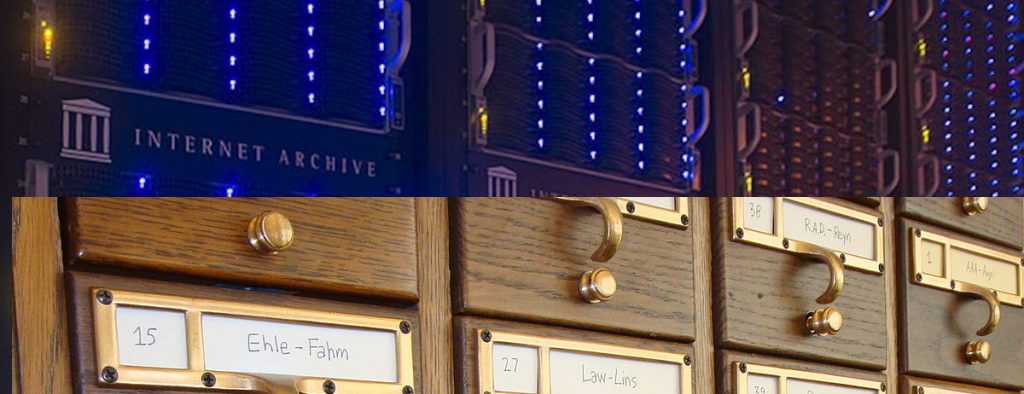
Michelle Alexopoulos is interested in tracking technology trends.
For a recent project that involved out-of-print government publications, the economics professor and her coauthor Jon Cohen tapped into resources from Internet Archive—available free and online—conveniently from her campus at the University of Toronto.
Alexopoulos specializes in studying the effects of technical change on the economy and labor markets. She uses library classification systems, including metadata from the Library of Congress, to understand how quickly technology is coming to market by tracing the emergence of new books on tech subjects. When it came to looking up old library cataloging practices, some documents were difficult to find.

“The Internet Archive has always been very good about preservation,” says Alexopoulos. She reached out to the Internet Archive for assistance in digitizing older Dewey Decimal classification documents and unlocking useful materials from the Library of Congress. The scanning center at the University of Toronto digitized some of the books for the project. “The Internet Archive makes content searchable and that helps facilitate the kind of research we are doing,” she says.
With the historical documents scanned, Alexopoulos was able to do data mining and text analysis to compare new categories and subentries librarians created over time when they identified a new technology emerging. As electricity, cars, airplanes and computers were invented, new published lists of terms were adopted to classify those topics in the books and materials that were being added to public and academic libraries.
“We are trying to capture when new technologies are coming to market and when they’re recognized as something significantly different than what we had before to get an idea of what is major and what is more minor in terms of impact,” Alexopoulos says.
The goal is to be able to recognize future trends in real time to predict which industries will be affected by the next big innovation. Economists love to blame technical change for all sorts of things, Alexopoulos says. For instance, there is debate now about whether artificial intelligence is going to “destroy us all” or whether it will lead to productivity growth, she says.
“Changes in technology can be linked to business cycles and they are really important for getting long-run economic growth,” Alexopoulos says. “The problem is our models rely on technical change, but it’s very difficult to measure it.”
Examples of books used in Alexopoulos’ research:
To describe technical change, some academics follow research and development expenditures; others look at the number of patents filed. But Alexopoulos believes that libraries are on the front lines and how they categorize new books on technology reflect trends in society. Examining the historical evolution of library classifications can show the spread of the technology and other terms linked to it.
Early indications from the analysis shows that artificial intelligence and robotics are indeed major developments that will lead to productivity gains, says Alexopoulos. She is writing up her findings now and hopes the information will help inform economists as they forecast the labor market trends in the future.
“I’m grateful to the Internet Archive for providing access and having the forethought to accumulate a lot of these historical materials that others may not have had the capacity to collect and make available to researchers,” Alexopoulos says. “I think its mission is very important. The Internet Archive has been a wonderful resource during the pandemic. It’s had a positive impact not just on research for faculty, but on the learning for students as well.”
it seems that the book, “L 237 Plato The Republic I: 1 5” — both pdf and jp2 form—- lost the page 1-40. that means the total pages is 656(according to amazon.com), and the pdf is only 566.
please check it.
i do not have the printed format, so i am sorry i cannot help you correct it.